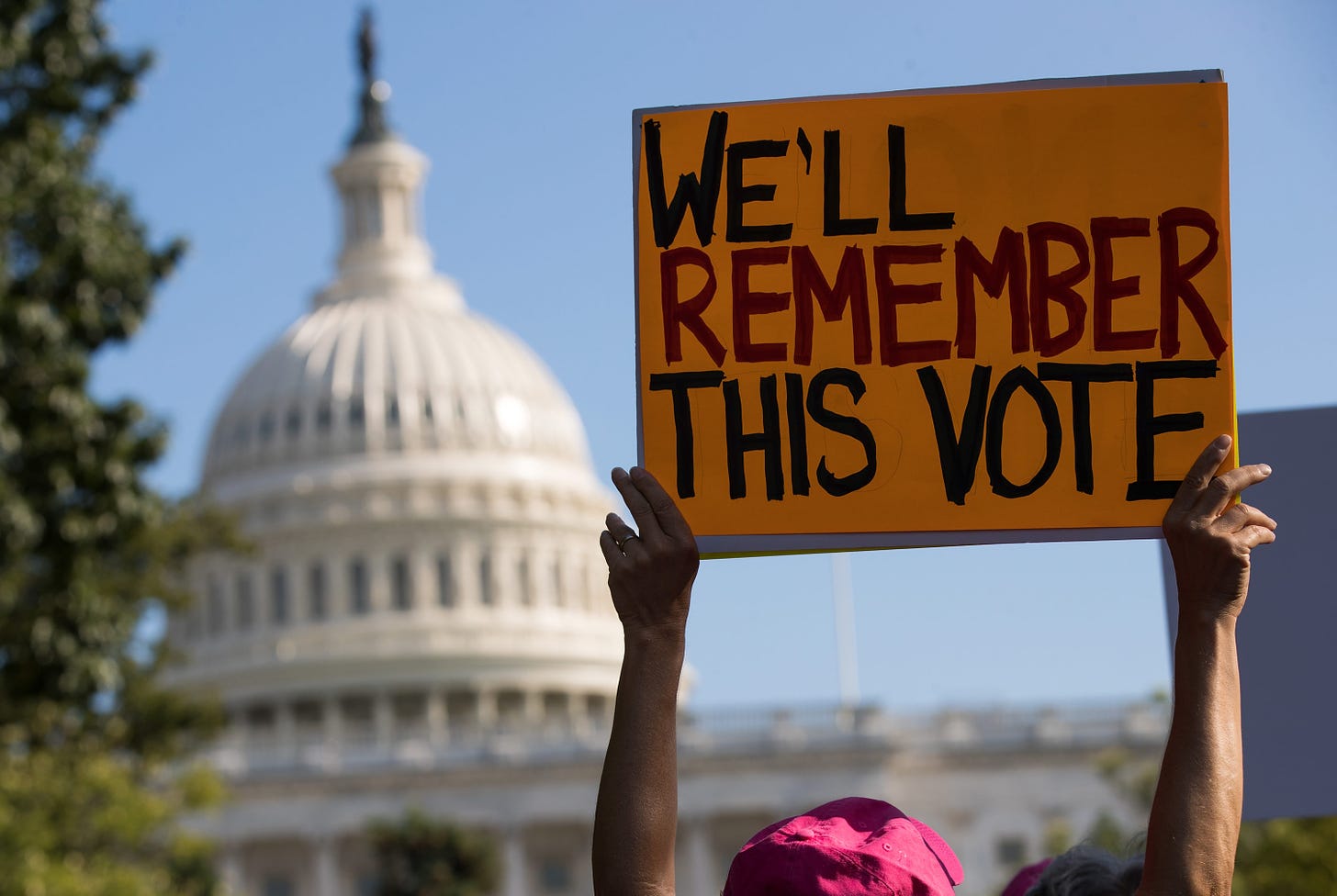What Do the 13 Republicans Who Voted Against Trump's Emergency Declaration Have in Common?
It's not their ideology. Or the composition of their district.
For some time now, my guess has been that the likeliest Republican to challenge Donald Trump for the 2020 nomination is someone who’s doughty, ambitious . . . and young. Think of the hungry 1991 Bill Clinton willing to take on the extraordinarily popular incumbent George H. W. Bush, or the striving 2007 Barack Obama willing to take on the seemingly unbeatable Hillary Clinton.
Contrary to the conventional wisdom that mounting a renegade campaign against President Trump would be a career-killer, I’m of the mind that it could prove to be a very helpful career booster.
Sure, you’d almost certainly lose. But you’d get all the media attention you could imagine, and you’d have a national platform to discuss the issues you care about most. You could lay out a bold vision for the post-Trump GOP. You could earn a reputation for vision, courage and—if you could avoid snidely or condescendingly criticizing the president—character.
This generally sounds like someone on the front side of a career—someone with the energy and gumption to take on a big, risky venture; someone still fueled by conviction and chutzpah; someone yet to reach the age at which time turns people into calculating pragmatists.
Heavens, have I been wrong so far.
Those at least flirting with the idea of a challenge are well-seasoned. John Kasich is 66; Bill Weld is 73; Mitt Romney is 71; Larry Hogan is 62. It appears that GOP leaders have concluded that since a primary challenge is the longest of longshots, it’s a job for those in the denouement of their careers.
But a curious—and potentially encouraging—event took place Tuesday: Thirteen Republicans in the House voted against the president’s contrived emergency declaration. And what stood out about that group was how young they skewed.
Before the vote, I suspected that dissenting Republicans would be long-experienced institutionalists and conspicuous constitutionalists. People who’d been in Congress for decades and, thanks to seniority and a history of standing up for constitutional principles, had the freedom to buck House leadership and the White House on a vote that was lost anyway.
There were a few of those among the 13 dissidents. Four were 60 or older, and Reps. Jim Sensenbrenner and Fred Upton, for instance, have each been in Congress for more than 30 years.
But Reps. Justin Amash, Elise Stefanik, and Mike Gallagher are in their 30s. Another four are between 40 and 45. None of these members have been in the House for a decade.
Age stands out because other obvious factors do not. Of the 13, a few won their 2018 elections in squeakers, but several others got more than 60 percent of the vote. Only two of the 13 are members of the conservative Freedom Caucus.
Ideology wasn’t a clear predictor either. According to govtrack, Amash was the fifth-most liberal GOP member in the 115th Congress, but Stefanik and Gallagher were in the more conservative half of the caucus. Sensenbrenner and Francis Rooney had more conservative voting records than most of the GOP caucus, but Thomas Massie and Greg Walden had more liberal voting records.
In the last Congress, the average age in the House was about 58. In this new Congress, that number has fallen, largely because of the massive influx of young Democrats. Perhaps these young dissident Republicans are taking some inspiration from their new, forward-leaning colleagues across the aisle. Or maybe their relative youth gives them the opportunity to take the long view and realize that hitching their wagons to the Trump administration is unwise.
Now, we shouldn’t get ahead of ourselves and read too much into this vote. It by no means suggests that one or more of these individuals will challenge Trump for the nomination in some kind of youth-fueled party rebellion. But we very well might be seeing the first lights on the horizon of the post-Trump GOP. These members showed that fidelity to the president is not their overriding consideration. Moreover, they demonstrated some political courage. The border wall has been among the president’s highest priorities. These members have to stand for election in less than two years, and Trump seems to enjoy exacting revenge on those who show him insufficient loyalty. But these young members voted against him anyway.
We could be seeing the makings of a new generation of post-Trump GOP leaders.
Or at least a preview of what the post-Trump fight for the GOP will look like.



